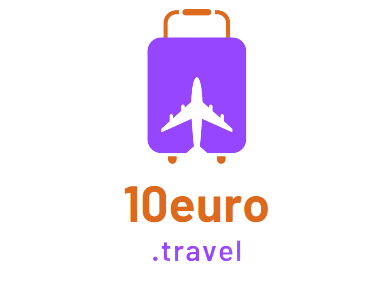No products in the cart.
Travel Guide
Travelers May Need Proof of €100 Spending Money Per Day In Spain And France
Last Updated
If travelers wish to visit the European Union and have a non-EU passport, there can be some obstacles. Getting the Schengen Visa—depending on where you come from—can be a challenging process, but there are additional steps any foreigner may need to take before traveling.
Unknown to many, travelers visiting from third countries (countries outside the EU) may have to prove they have 100 Euros per day of spending money to enter EU nations like Spain and France.
For many travelers, this isn’t an issue; for budget travelers, this could cause some problems.

What Does EU Law Suggest?
According to EU law on entry from third countries, travelers from non-Schengen and non-EU nations technically need to show proof of financial support for their entire stay in the Schengen Zone.
The EU calls this ‘means of subsistence.’ Travelers can prove their means of subsistence in the following ways:
- Cash
- Credit card
- Bank statements
- Proof of employment
- Proof of prepaid accommodation
- Payslips
Individual EU nations decide how much this requirement needs to be; it varies from nation to nation.
Border guards don’t ask each traveler for means of subsistence every single time, as that would substantially slow down border crossing queues, but travelers should be aware that any non-EU tourist could be randomly asked to show proof of funds for entry.

Spain’s Entry Requirements
Travelers from third countries will need to show they have enough funds to cover 100 Euros per day in Spain. Spain has decided the amount of funds travelers should present must be 10% of the minimum inter-professional gross wage or the legal equivalent in third-country currency multiplied by the number of days a traveler wishes to spend in the country.

The EUR-Lex notes said: “Foreigners who intend to enter the national territory must continue to prove that they have a minimum amount of €100 per person per day, those they intend to stay in Spain with a minimum of €900 or its legal equivalent in foreign currency, provided that they are required by the officials in charge of carrying out the control of entry into Spanish territory and under the terms established in the aforementioned Order,”

France’s Entry Requirements
France will also continue to require travelers to prove they have over 100 Euros per day.
For example, the French authorities suggest travelers must prove they have a minimum of 120 Euros per day if the traveler doesn’t have evidence of prepaid accommodation. However, the amount decreases to only 65 Euros per day if the traveler has prepaid for the accommodation.
Moreover, France will allow budget travelers—if they prove they are staying in cheaper accommodation—to show proof of only 32.25 Euros per day. That will be a relief to many backpackers looking to visit France on a budget.

What About Other EU Nations?
The rules vary depending on the country:
- Belgium – Belgium has two ways of proving means of subsistence. If travelers stay in hotels, they need to prove they have 95 Euros per day; if travelers stay in cheaper accommodation—such as hostels—they must prove they have 45 Euros per day.
- Germany – Germany is more straightforward than some EU nations; they require travelers to prove they have 45 Euros per day.
- Netherlands – Similarly to Germany, the Netherlands makes it straightforward. Travelers must prove they have a minimum of 34 Euros per day.
- Italy – Italy, however, isn’t as simple. If travelers stay for up to 5 days, they must prove a fixed sum of 269.60 Euros. If travelers stay between 6 to 10 days, they must prove they have 44.93 Euros per day. And if travelers stay between 11 and 20 days, they must show a fixed sum of 51.64 Euros and proof of 36.67 Euros per day.
- Austria – Austria is an outlier in Europe. They review means of subsistence on a case-by-case basis. Of course, this may cause some uncertainty.
- Denmark – Denmark requires travelers to prove they have around 67 Euros per day of spending money. If travelers are staying in budget hotels or hostels, this drops to 47 Euros per day.
- Finland – Finland requires far less proof of funds compared to many EU nations; travelers only need to prove they have 30 Euros of spending money per day.
- Latvia – Latvia only requires proof of 14 Euros of spending money per day.
- Sweden – Sweden requires travelers to prove they have around 48 Euros of spending money per day.

The strictest financial entry requirements for third countries are in Spain and France. On the contrary, the rules are much more lenient in Germany and the Netherlands.
Either way, entering the Schengen Zone for non-EU citizens continues to be more challenging than visiting many non-EU nations. Any tourist visiting Europe this spring and summer should be aware that proof of funds may be asked for and show up to the border prepared. Starting in 2023 ETIAS will officially launch, creating another step for non-EU travelers visiting many European nations.

Read More:
Travel Insurance That Covers Covid-19 In 2022
Travelers Will Find Renting Cars From This Company Easier Than Ever
Italy And Spain Will Not Yet Join Other EU Nations In Removing Entry Requirements
↓ Join the community ↓
The Travel Off Path Community FB group has all the latest reopening news, conversations, and Q&A’s happening daily!

SUBSCRIBE TO OUR LATEST POSTS
Enter your email address to subscribe to Travel Off Path’s latest breaking travel news, straight to your inbox
Disclaimer: Current travel rules and restrictions can change without notice. The decision to travel is ultimately your responsibility. Contact your consulate and/or local authorities to confirm your nationality’s entry and/or any changes to travel requirements before traveling. Travel Off Path does not endorse traveling against government advisories
Source link

